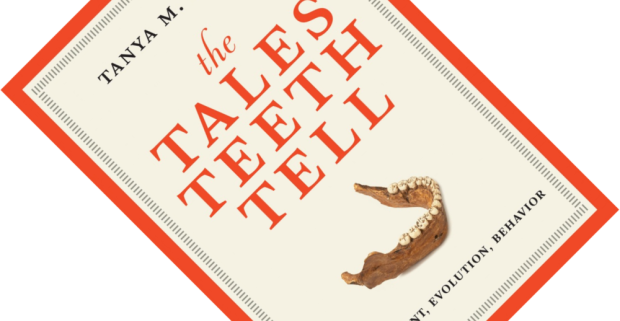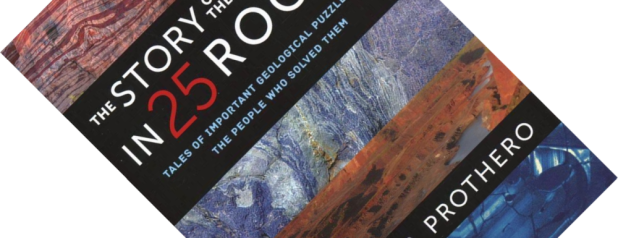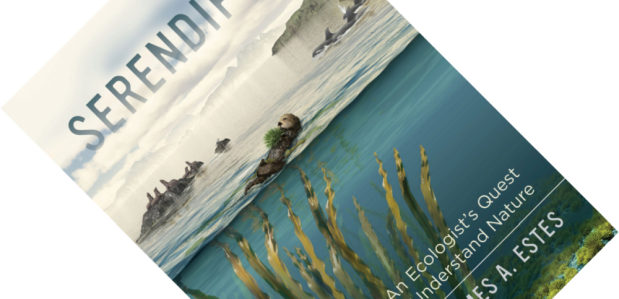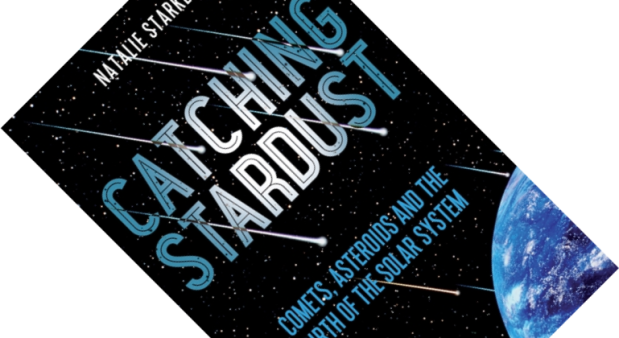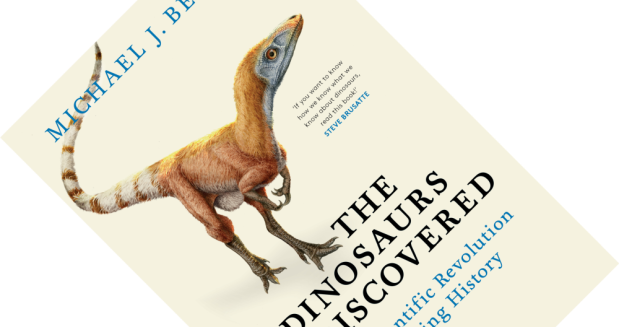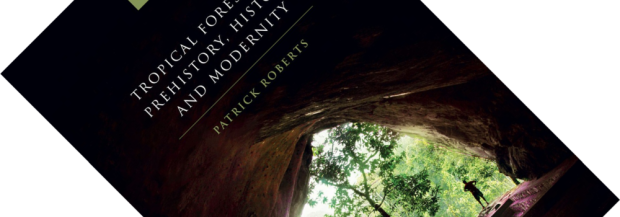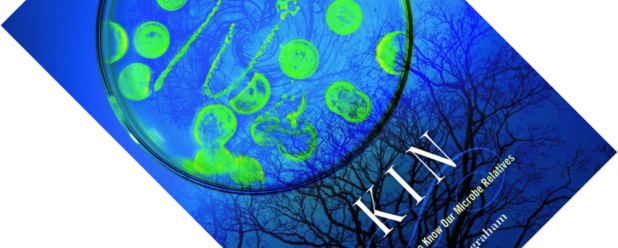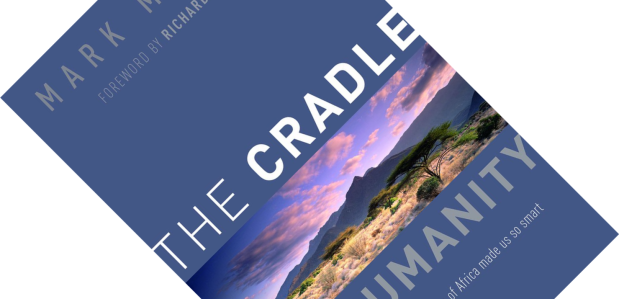Many works of popular science claim to be histories of almost everything or everyone, but earth scientist Robert M. Hazen might actually be in the position to stake that claim. Whether you are talking stellar evolution, the origin of life, organic chemistry, synthetic materials, or hydrocarbon fuels – the multifaceted atom carbon is ubiquitous and pervasive. Symphony in C is a whirlwind tour through geology, biochemistry, and evolutionary biology that is an incredibly absorbing read, although in places it almost comes apart at the seams under the intensity of its enthusiasm.
isotopes
Book review – The Tales Teeth Tell: Development, Evolution, Behavior
When I picked up The Tales Teeth Tell, the first thing I thought was: “Another book on fossil teeth?” After reviewing Ungar’s Evolution’s Bite: A Story of Teeth, Diet, and Human Origins in 2017 I was worried this might be more of the same. Was I ever wrong! Professor in human evolutionary biology Tanya M. Smith here shows there is a lot more to say about human teeth and their evolution.
Book review – The Story of the Earth in 25 Rocks: Tales of Important Geological Puzzles and the People Who Solved Them
Judging by the title of this book, you might expect it to talk of 25 remarkable kinds of rocks and minerals. But in the preface, geologist and palaeontologist Donald R. Prothero makes clear that his book looks as much at famous outcrops and geological phenomena. Bringing together 25 readable and short chapters, he gives a wide-ranging tour through the history of geology, celebrating the many researchers who contributed to this discipline.
Book review – Serendipity: An Ecologist’s Quest to Understand Nature
Sea otters don’t eat algae. And yet, their diet influences the abundance of seaweed. How? Indirectly. Sea otters eating sea urchins (spiky animals in the same class as sea stars) eating kelp has become a textbook example of a trophic cascade, and Serendipity is a first-hand account by ecologist James A. Estes of how this happened. A trophic cascade refers to the indirect effects that ripple through a food web as a result of, for example, a predator consuming its prey. Simultaneously, the book is a searingly open account of how science is done, how ideas change, and how fortuitous events can suddenly send your research programme off in a whole new direction.
Book review – Catching Stardust: Comets, Asteroids and the Birth of the Solar System
Asteroids and comets have a bad reputation. Looking back over the books I have reviewed, they usually come up in the context of impact and destruction. But there are other important reasons to study them and geologist and cosmochemist Natalie Starkey here steps up as their enthusiastic spokeswoman. Whether as frozen time capsules, possible vehicles dispersing the basic chemicals required for life, or even future mining quarries, Catching Stardust champions the importance of scientific research on these celestial objects.
Book review – The Dinosaurs Rediscovered: How a Scientific Revolution is Rewriting History
If you are interested in dinosaurs, the last two years have seen a slew of great books published, and there is more in the pipeline. The latest I am reviewing here is The Dinosaurs Rediscovered from the well-known British Professor of Vertebrate Palaeontology Michael J. Benton. With a huge number of possible topics you could write about, and an already saturated book market, Benton has set himself a very specific aim: to show how the science of palaeobiology has moved from a descriptive, speculative scientific discipline, to a hard, testable, rigorous one. In other words, given that palaeontologists nowadays regularly make some pretty amazing and precise claims about creatures long extinct, how, exactly, do they know that?
Book review – Tropical Forests in Prehistory, History, and Modernity
Primaeval, pristine, playground of Indiana Jones, home to ancient ruins and primitive tribes – nothing says wilderness more than tropical rainforests. They have had a firm grip on our collective imagination for centuries as the antithesis of civilization. But after reading archaeologist Patrick Roberts’s Tropical Forests in Prehistory, History, and Modernity, it seems my introduction is a load of lyrical rubbish. Synthesizing an enormous body of scientific literature, this book dispels the Victorian-era explorer-mystique to reveal a picture that is far more fascinating.
Book review – Essentials of Geology (13th Edition)
Like so many teenagers, I wanted to become a palaeontologist. However, there was no degree programme in palaeontology in the Netherlands back then (I doubt there is one nowadays), so I was advised that one option to prepare myself was to do a Master’s in biology or geology. I choose the former and never looked back, but remained fascinated with the latter. Now, twenty years later, my job exposes me to many geology textbooks and especially Cambridge University Press has a wonderful output of advanced-level books that I really want to read. But when I reviewed Earth History and Palaeogeography some time ago, I realised I was out of my depth and struggled with the jargon. Is it ever too late to start over and make an entry into a new field? I decided to shell out and invest in a textbook to find out.
Book review – Kin: How We Came to Know Our Microbe Relatives
The problem with many history books is that they are written long after the facts, sometimes when the original protagonists are no longer alive. Historians or journalists often have no choice but to puzzle together the pieces of their story from eyewitness testimony or archival sources. Kin: How We Came to Know Our Microbe Relatives is a welcome exception to this rule. Written by emeritus microbiology professor John L. Ingraham, currently 94 years young, this book gives an intellectual history of the discipline of microbiology based on over seven decades of first-hand involvement and observation.
Book review – The Cradle of Humanity: How the Changing Landscape of Africa Made Us So Smart
The story of human evolution is constantly being refined with new findings and there is a glut of accessible books that cover this topic from various angles. Yet, with The Cradle of Humanity, geography professor Mark Maslin manages to provide an interesting and novel take on the subject, showing the reader how a happy combination of larger factors conspired to influence and steer our evolutionary trajectory. It could have ended up so differently…


